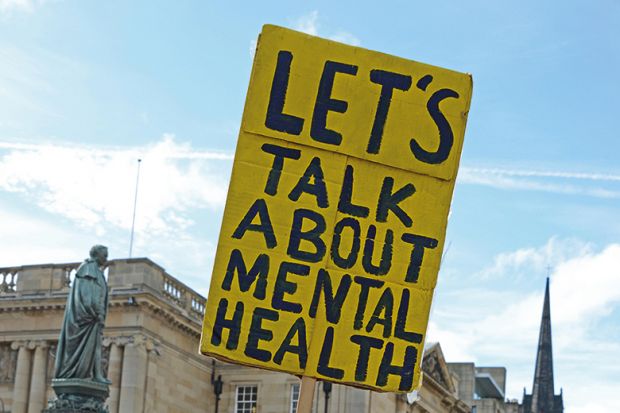Labelling universities as “uniquely toxic environments” could do more harm than good to student mental health, a leading psychiatrist has warned.
There is growing concern about the prevalence of mental health conditions among students, but Sir Simon Wessely, Regius professor of psychiatry at King’s College London, questioned the value of campaigns that aimed to raise awareness of the mental health challenges associated with higher education.
University life was a time of “tremendous changes” that encompass both good and bad experiences, and labelling universities as “toxic” for mental health could encourage students to adopt a more negative outlook, Sir Simon, a former president of the Royal College of Psychiatrists, told a conference.
“We need to ensure that people have a proper understanding of both [the good and bad experiences] and not take either a mindlessly optimistic view or a negative pessimistic one,” he told Times Higher Education afterwards. “Neither is neutral – both can create distress and disorder.”
Speaking at a Universities UK conference on student mental health, Sir Simon questioned whether awareness-raising campaigns would help to tackle the issue.
“Most people who have a mental health disorder [such as] depression or anxiety know they do,” he said. “And therefore that’s not the reason why they aren’t presenting for help.”
Failure to seek help is more likely because of issues such as stigma or the opinion that mental health services are inadequate, he told the conference.
Moreover, Sir Simon added, by focusing on raising awareness, there were dangers of “adding to the over-professionalisation and over-medicalisation of normal emotions”.
This could, in turn, lead to more pressure on an already overburdened NHS.
“Increasing expectation without resource can endanger us all. We will then end up with even more frustrated and demoralised patients, and even more demoralised and frustrated professionals,” Sir Simon said.
Sir Simon added that, instead of being urged to seek professional or medical attention immediately, students should instead be encouraged to seek help from friends, families and university staff, welcoming initiatives such as Heads Together and Mental Health First Aid that supported people to take on this sort of role.
“People like me need to stay in the background until we are needed,” Sir Simon said.
Other speakers at the conference included Steve West, vice-chancellor of the University of the West of England and chair of UUK’s mental well-being in higher education working group, who spoke about the StepChange Framework, which encourages universities to adopt mental health and well-being as strategic priorities.
The framework – currently being piloted at three UK universities – recommends that institutions should work closely with the NHS to consider how mental health services should be delivered to student populations. It also advocates working in close partnership with parents, schools and colleges, as well as with employers and businesses.
However, Professor West added that it was important not to create an environment that “over-medicalises our universities”.
“We need to ensure that we create an environment in which we are open, honest and having conversations,” he said. “That’s not about medicalising, that is about socialising and making sure that people are looking out for each other.”
Professor West added: “Throwing loads of money at it and going for more counsellors will not solve the problems. We have to be more creative.”
Register to continue
Why register?
- Registration is free and only takes a moment
- Once registered, you can read 3 articles a month
- Sign up for our newsletter
Subscribe
Or subscribe for unlimited access to:
- Unlimited access to news, views, insights & reviews
- Digital editions
- Digital access to THE’s university and college rankings analysis
Already registered or a current subscriber?








